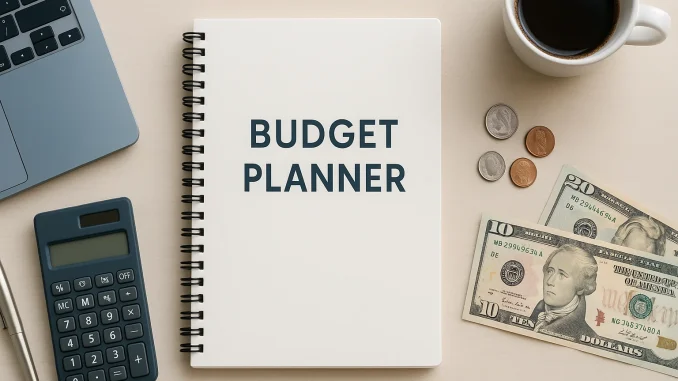
In a world where financial stress is all too common, having a reliable budget can be your saving grace. Whether you’re a student, a recent graduate, or someone finally ready to take control of your finances, learning how to budget effectively is your first step toward financial freedom.
Why Budgeting Matters More Than Ever
Let’s be honest: living paycheck to paycheck is exhausting. With rising living costs, unexpected expenses, and ever-growing debt, it’s easy to feel overwhelmed. But here’s the good news—budgeting isn’t about restrictions. It’s about making your money work for you.
Creating a budget isn’t just about cutting lattes or skipping takeout. It’s a system that helps you spend with intention, save with purpose, and build financial confidence.
Step 1: Know Where Your Money Goes
Before you can take control of your money, you need to know exactly where it’s going.
Track Your Spending
Start by tracking every dollar you spend for at least one month. Use budgeting apps like YNAB, Mint, or even a simple spreadsheet. Include all your fixed expenses (rent, subscriptions) and variable expenses (groceries, entertainment).
You might be surprised to see how much you spend on small, daily habits—those $4 coffees and $10 delivery fees add up fast.
Step 2: Set Financial Goals That Motivate You
Budgeting works best when it’s tied to a meaningful purpose. Ask yourself:
- Do I want to get out of debt?
- Am I saving for a trip, home, or emergency fund?
- Do I want to start investing?
Setting short-term and long-term goals gives your budget direction and keeps you motivated, especially when temptation strikes.
Step 3: Choose a Budgeting Method That Suits Your Lifestyle
One size doesn’t fit all. Different budgeting methods work for different people. Here are three beginner-friendly options:
The 50/30/20 Rule
- 50% of your income goes to needs (rent, groceries)
- 30% to wants (entertainment, hobbies)
- 20% to savings and debt repayment
Zero-Based Budgeting
Every dollar has a job. You assign every dollar of your income to a category until you reach zero—meaning nothing is left unassigned.
The Envelope System (Digital or Physical)
Put money into category envelopes—when it’s gone, it’s gone. Great for those who want a tactile way to control spending.
Choose what feels manageable and easy to stick with, then adjust as your income or goals change.
Step 4: Automate and Simplify Your Finances
Automation is your best friend. Set up automatic transfers for:
- Savings (even if it’s just $10/week)
- Debt payments
- Recurring bills
This ensures you don’t miss payments and helps you save without thinking. It’s all about building good habits without extra mental effort.
Step 5: Expect the Unexpected
Life happens—unexpected car repairs, medical bills, or surprise events. That’s why you need an emergency fund. Aim for at least $500 to start, then build up to 3–6 months of essential expenses.
Having a safety net keeps your budget intact and prevents you from falling into debt when things go sideways.
Common Budgeting Mistakes to Avoid
Budgeting isn’t about being perfect. But here are a few traps to watch out for:
- Being too strict: If your budget feels like a punishment, you won’t stick to it.
- Not reviewing regularly: A budget is a living document—check it monthly.
- Ignoring irregular expenses: Things like birthdays, car insurance, and holidays need to be planned for.
- Skipping self-care: Allow yourself small joys. Budget for them.
Conclusion: Your Budget, Your Rules
Budgeting isn’t just about dollars and cents—it’s about freedom, security, and peace of mind. From zero to hero, anyone can learn to manage their money with the right tools and mindset. You don’t need to be an expert. You just need a plan that works for you.
Start simple. Stay consistent. Adjust as you grow.
The sooner you start, the sooner you’ll stop wondering where your money went—and start telling it where to go.
Ready to take the first step? Bookmark this guide and check out more financial tips at BlueBooks.icu
Leave a Reply